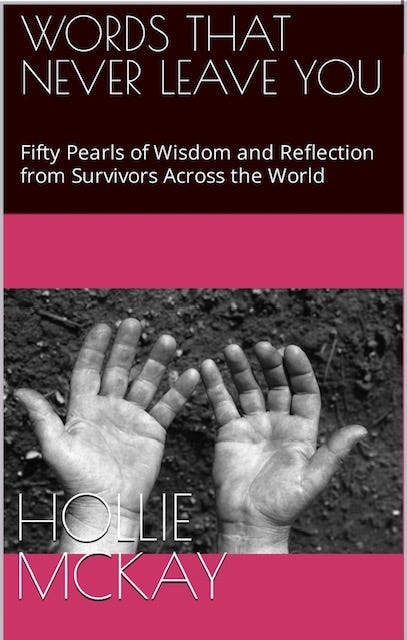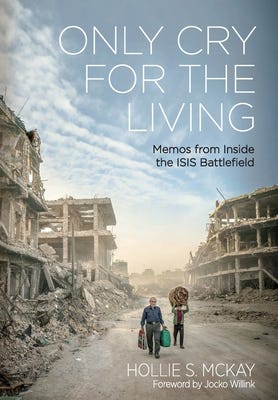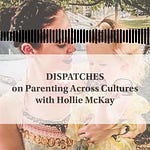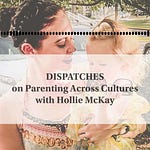It is as old as time and perhaps the most guttering – and least spoken about – component of conflict: sexual violence as a weapon of war. And when it comes to the ongoing Russian-waged war in Ukraine, it is dizzying even to try and comprehend the chilling scale. I’ve heard sordid accounts of everything from gang rape and rapes in front of horrified children to onslaughts at gunpoint and assaults cast purely for the pleasure of humiliation.
As a writer, such a topic is challenging to describe and depict with the limiting power of words. Thus, one can only imagine the innate strength it must take to come forward, knock down the barriers of shame and stigma, and speak out. Sadly, sexual violence is a buried reality of every conflict I have covered across the planet. Yet so little is done to hold perpetrators to account in the aftermath.
As is the situation in Ukraine, women and men also have to endure the looming threat that it could happen at any moment, especially in heavily fraught parcels of the beleaguered nation, to either yourself or someone you love most in the world. In the throes of war, there is no 911 to call, no emergency services to appear at your door, and no fully functioning hospital to take you in.

A UN Commission report illuminated what it depicted as “patterns” of rape and sexual violence on Ukrainians throughout the war, with victims ranging from as young as four and as old as eighty-three. For example, the report brought to light the beyond disturbing account of a Russian soldier forcing a four-year-old to perform oral sex on him while her helpless parents looked on. Another horrific filing detailed how an 83-year-old woman was raped in the presence of her physically disabled husband by a Russian soldier occupying her village last year.
We can all opine our own thoughts and opinions about the ongoing war in Eastern Europe, but this is sick, sick stuff that should make all of us, with a heartbeat, collectively outraged and appalled. The Office of the United Nations High Commissioner for Human Rights (OHCHR) points specifically to four types of risks of sexual violence: the destruction of homes and infrastructure, increased military presence and activities in civilian areas, the surge of women and girls leaving Ukraine leading to an alarming uptick in human trafficking, and internal displacement.
Nevertheless, it is also important to remember that in the nuanced shambles of war, atrocities of this nature are often inflicted from both sides – although it certainly skews much more one way. According to the UN, as of last year, roughly 82.4 percent of cases of sexual violence were allegedly carried out by Russian or Russian-associated forces. In comparison, the remaining 9.24 percent were reported to have been perpetrated by Ukrainian troops or law enforcement.
Why is wartime sexual violence perceived differently than rape that occurs during war but is unrelated to the conflict? Per international law, rape committed by combatants during armed conflict or military occupation is a war crime under Protocol ll in addition to the Geneva Conventions.
Rape constitutes a violation of international law even if it occurs indiscriminately without a strategic purpose and on a small scale. A crime against humanity is designated and prosecuted when rape occurs on a mass scale or due to orchestrated policy. It can also rise to the level of genocide when it is recognized as a strategy to destroy – in whole or part – a targeted (often ethnic) population group.
In the context of war, rape is often used primarily as a method of psychological warfare to terrorize and humiliate the opposing side and deployed as a vicious tool to achieve certain military objectives. It can decimate close-knit communities and destroy families, lead to mass displacement, persecute sub-sections of the population, and denounce survivors to a lifetime of pain and trauma. I have long said that you can take a life without killing people, and rape as a weapon of war does just that.
The Russian forces have a long and nasty history of utilizing such a method. Soviet leaders Vladimir Lenin and Joseph Stalin instituted “Red Terror” policies from 1919 to the Union’s collapse in 1991. These policies involved orders of rape by Soviet troops against prisoners of war or civilians enduring armed conflict with the USSR. Moreover, during the early 1930s invasion of Manchuria, Soviet and Mongolian soldiers assaulted, raped and slaughtered thousands of Japanese civilians at the urging of Chinese leaders resentful of the Japanese rule. Furthermore, Human Rights Watch chronicled several cases alleged to have occurred in Chechen towns and villages in early 2000.
“It would certainly be a step in the right direction if the Russian government actually prosecuted a serviceman for rape,” Holly Cartner, executive director of the Europe and Central Asia division of Human Rights Watch, stated at the time. “But a single prosecution wouldn’t begin to address the problem. There have been hundreds of war crimes, including summary executions and rapes, committed by Russian soldiers in Chechnya.”
More recently, Kremlin-backed Wagner mercenaries have also come under fire for committing such violations in areas it operates from the Central African Republic and Syria to Mali and Libya.
While girls and women bear the brunt of abuses committed in war, boys and men are not immune. Since Russia invaded its neighbor in the late winter of 2022, painful accounts of sexual violence have surfaced, from forcibly paraded naked in streets to genital electrocution, castration or sodomy. Unfortunately, much of this goes underreported, given the stigma and ingrained perceptions of masculinity.
And even though such horrors have taken place under the umbrella of war from ancient to modern times, international judicial systems have only considered wartime rape an international crime for twenty-five years. The precedent was set in 1998 by the International Criminal Tribunal for Rwanda (ICTR), which, for the first time, declared rape a crime against humanity. Ten years later, the UN Security Council passed Resolution 1820, which affirms that “rape and other forms of sexual violence can constitute war crimes, crimes against humanity, or a constitutive act concerning genocide.”
It wasn’t until 2016 when the International Criminal Court (ICC) issued its first conviction for the crime, finding the former vice president of the Democratic Republic of Congo, Jean Pierre Bemba Gombo, guilty of atrocities committed during the Central African Republic conflict from 2002 to 2003. However, two years later, Bemba was acquitted on all charges on Appeal. Rapists appear to go unpunished as consistently and as widely as rape itself.
Of course, the Kremlin staunchly denies current and past sexual violence crimes as “Western myths.” But will alleged perpetrators, and those who ordered such brutal acts, ever be brought into an international court of law? Rape is an underreported and highly stigmatized issue, even during times of peace. From my experience dealing with foreign governments whose citizens suffered through this during war, there are “more important” issues and crimes.
“Why would we charge someone for rape when they are a terrorist who has killed hundreds of innocent people?” a Baghdad official once lamented when I raised the matter of Yazidi sex slaves at the behest of ISIS.
Many military and political leaders, in other words, those with the power to stop rape, have mischaracterized and dismissed it for years. Instead, they have portrayed it as a private crime, as a sexual act, or as the vile conduct of one occasional soldier, or even worse, it has been accepted because it is so widespread.
But acknowledging and prosecuting the crime matters. The resulting agony condemns many to intense hardship for years to come and is often passed down from generation to generation. We’re talking about women abused in front of their children and their children in front of their families as a calculated tactic that can never be undone.
Let’s hope that whenever the dust settles on the war in Ukraine, international courts and tribunals don’t just recognize the killings, bombings, and acts of armed violence but also the personal horrors of sexual violence. After all, you can take a life without killing – and you can kill someone many times over. And that is what survivors must live with for the rest of their years.
PLEASE CONSIDER A PAID SUBSCRIPTION TO THIS SUBSTACK TO HELP KEEP INDEPENDENT, AGENDA-FREE WRITING AND JOURNALISM ALIVE. THANK YOU SO MUCH FOR YOUR SUPPORT.
For speaking queries please contact meta@metaspeakers.org
Follow me on Instagram and Twitter for more updates
HOLLIE’S BOOKS (please leave a review)
** Short read of meaningful lessons gleaned from the ordinary forced to become extraordinary
Order your copy of “Afghanistan: The End of the US Footprint and the Rise of the Taliban Rule” due out this fall.
For those interested in learning more about the aftermath of war, please pick up a copy of my book “Only Cry for the Living: Memos from Inside the ISIS Battlefield.”
If you want to support small businesses:















Share this post